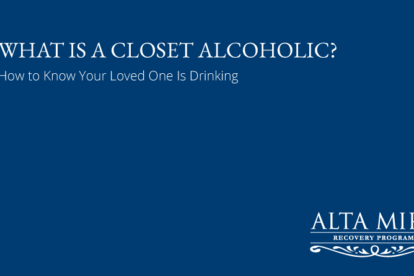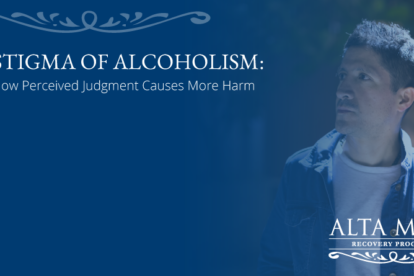Alcohol Treatment for Seniors: What to Expect for Your Family

If you think that an elderly family member may be addicted to alcohol, it’s time to get help now. You can be assured that alcohol treatment programs for seniors are comprehensive, compassionate, and specifically geared toward each individual’s needs. Alcohol rehab will even involve family programs to promote collective healing and to better support your aging loved one.
Too often, isolation and loneliness are predominant qualities of aging. Too often, we take for granted that older adults will experience a decline in health, and we neglect the therapies and treatment options that could improve their health, happiness, and quality of life enormously. Alcohol is a double-edged sword for seniors: at once, a readily available yet ineffective coping mechanism and a terribly dangerous recipe for suffering.
The symptoms and signs of alcoholism in aging adults may be challenging to identify, but family members are in an ideal position to observe and to notice behavioral changes that may indicate problems. If you have an elderly family member suffering from a substance use disorder, you can also play an important role in helping them to access critical treatment. Especially before more falls and injuries occur and before more serious physical and mental health complications take hold, they need urgent alcohol treatment designed for seniors. A period of comprehensive alcohol rehab is a vital first step in the rest of their fulfilling life.
What You Can Expect from Alcohol Treatment Programs for Seniors
It’s important that we take seriously the need for addiction treatment among the elderly. The risks are very real and very serious, and the opportunities for inspiring recovery are entirely possible. Unfortunately, they may come up against stigma, impatience, and helplessness on top of the challenges already wrapped up in getting older. It’s that much more important that we help our aging loved ones get connected with professional help.
Similar to addiction treatment programs geared toward the general population, seniors need medically supervised detox, psychotherapy, attention to co-occurring disorders, peer and family support, and ongoing care for their long-term recovery. Some unique elements of alcohol treatment for seniors include a personalized care plan that incorporates health management and holistic therapies; the space and the pace that best support their personal progress; and clinicians who understand the particular challenges of later life transitions.
Through motivational interviews, care partners can help your aging loved one to identify their personal goals and inspirations for recovery. This step is crucial for the success of their treatment. But it is also a process that helps them to feel seen and heard for their own sake. It is a process that begins to reverse the experiences of isolation and loneliness. And the many support systems they will develop at an integrated alcohol addiction rehab take root in this personalized initiation.
Ultimately, treating alcohol abuse and addiction in seniors is not just about removing the substance and breaking the dependence; it is also an exploration of the problems an older adult has been trying to solve by reaching for a drink. It is about helping them to feel empowered by a full toolbox of alternative coping mechanisms. It is about rediscovering the ways that they can be purposeful, connected, and fulfilled in life.
Hope is Just a Phone Call Away
866-922-1350How the Whole Family Can Heal Through Treatment
Alcoholism is not just hard on the one who is addicted. Perhaps you already worry about your senior loved one’s health and well-being. Watching them struggle with alcoholism can bring greater confusion and helplessness. It’s hard to know how to deal with an alcoholic. And this person’s age and the unique family dynamics around it may introduce even more sensitivity and vulnerability.
But these apparent barriers do not lessen the importance of treatment. In fact, help may be even more important because of the scope of sensitivities and vulnerabilities involved. And guidance and ongoing support for the whole family is critical as well. Fortunately, this is an integral part of comprehensive treatment for alcohol addiction.
Family members are encouraged to participate in particular ways that support their loved one’s recovery and reinforce their own needs within the family structure. Along with individual therapy, family therapy can address communication, resentments, and misunderstandings about personal issues and about addiction in general. This family program can help to heal relationship issues that run deeper than the addiction—and may even be active catalysts for the addiction.
The right treatment program will be committed to helping the whole family heal. This inclusive, open-minded approach establishes the best recovery outcomes for the senior who is addicted. And, of course, it paves the way for more productive family dynamics and a cooperative approach to everyone’s mental and behavioral health. It is our responsibility to end isolation and suffering together wherever we can. And we can begin with your family.






